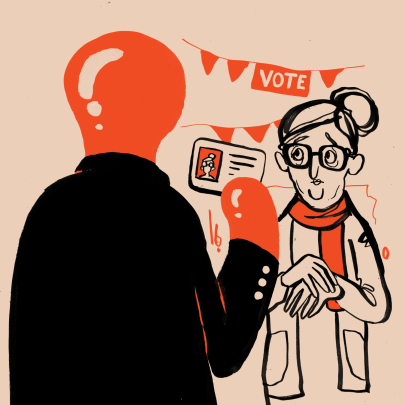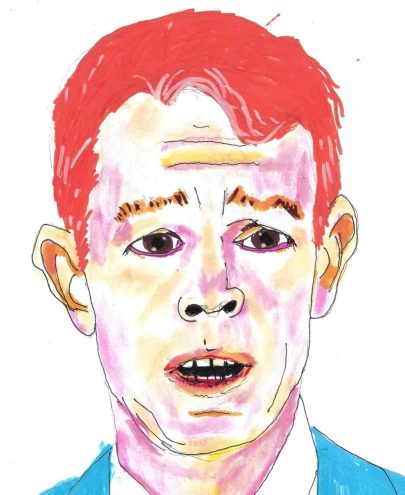Feb 18, 2016 Politics
The left has whipped itself into a paranoid frenzy over the historic trade deal.
Former Alliance and Internet Party leader Laila Harré now runs Ika restaurant in Mt Eden. Her goal is to prove that a decent neighbourhood restaurant can make a profit while paying its workers the so-called “living wage” of $19.25 an hour. The food and service are very good and she appears on track to make her political and commercial point.
One of the ways Harré is filling tables on the usually slow Tuesday night is with a monthly political “table talk”. The political left’s favourite luminaries, Nicky Hager, Jane Kelsey and John Campbell, have all been previous guests. In February, it was my turn, along with two others. Many of the guests had been involved in the motorway blockade and other protests the previous week so the table talk soon turned to the landmark Trans-Pacific Partnership (TPP).
As it happens, I know quite a bit about the deal. As a young Beehive staffer in the mid-1990s, I sat in during the early ministerial meetings when New Zealand and Singapore began talking about how to put together a group of small countries with enough weight to draw the US into free-trade talks. Consequently, I have followed the TPP’s progress with interest over nearly 20 years and have remained friends with many of the negotiators who have made it their life’s work to bring it about. I have carefully read the text and commentary since the agreement was released last year.
All along I have regarded the likelihood that the TPP would ever be completed and ratified by the US as so low that I have made several large bets it would never happen. I may yet still win these bets, but it is to the extraordinary credit of New Zealand’s diplomats that they have managed to get us even this far.
The reason I disclose all this is to explain why I find it so disappointing when people such as Josie Butler, who threw the dildo at Steven Joyce at Waitangi, describe the deal as “the rape of our tino rangatiratanga, the torture of our basic human rights, and the murder of our people”. This is to accuse my friends who have worked towards the TPP of rape, torture and murder, and insults those who are victims of those crimes. In fact, our TPP negotiators are among our nation’s best: highly intelligent and highly patriotic New Zealanders who deeply understand our place in the global economy. They believe it is undeniably in our best interests to form a close economic partnership with the US and Japan — in addition to our deals with Australia, China and South Korea — and they are right. The deal they have struck is historic.
Sadly, though, Butler’s extreme sentiments were clearly shared by many of Harré’s guests. The fact I found it straightforward to address every one of their concerns created enormous cognitive dissonance and it is to their credit that the event remained friendly and fun. Dismayed, though, the left-wing columnist Chris Trotter wrote two days later that I had used dragon-like powers to subdue the crowd. All I had really done was answer people’s questions fairly, based on the TPP text and my background knowledge.
Over the past few years, we have witnessed an unprecedented misinformation campaign against the TPP by ideological opponents of globalisation, which the government has as yet failed to counter.
Over the past few years, we have witnessed an unprecedented misinformation campaign against the TPP by ideological opponents of globalisation, which the government has as yet failed to counter. It has led struggling Labour leader Andrew Little to rage that the next election will be fought on the issue of “sovereignty”.
This is, to put it politely, absolutely bonkers. There is a sense in which the TPP restricts day-to-day sovereignty, as does our membership of the United Nations, the International Labour Organisation, the World Trade Organisation, the International Whaling Commission, the Nuclear Non-Proliferation Treaty, the UN Framework Convention on Climate Change and the Antarctic Treaty. In all these cases, we have made promises that there are some things we will not do. But ultimate sovereignty always remains with our Parliament, and New Zealand is able to withdraw from the TPP with six months’ notice by writing a letter to the 11 other parties. The fact we would never do so is because it will always be overwhelmingly in New Zealand’s interests to be part of the economic bloc.
Like all meaningful international agreements, the TPP provides a dispute settlement process that we agree to abide by as long as we stay in the deal. It doesn’t allow foreign corporations to sue New Zealand just because we compromise their profits. Those provisions apply only to those who have invested in New Zealand based on policy assurances we have made. Such provisions aren’t new in economic partnership agreements but New Zealand has never been sued under any of the other deals with similar rules and it is almost inconceivable we ever will be.
In the TPP agreement, the rights of Maori under the Treaty of Waitangi are completely protected except in a case where a future government made obviously bogus clams: say, by banning imports of Australian bananas by asserting the Treaty of Waitangi. The operation of Pharmac remains the same, but with a new appeal process and five-year patents on new-generation biologic medicines that haven’t been invented yet.
On the tenants-in-our-own-land issue, a future government would be able to tighten Overseas Investment Office rules to restrict foreign investment in farms or anything else. People with Chinese-sounding names and other foreigners could be stopped from buying residential property in Auckland or elsewhere through new discriminatory stamp duties. The trade access gains, including for the dairy industry, are very significant and have been welcomed by exporters.
It’s perfectly OK to be against globalisation and to protest in the streets against its latest manifestation. But those whose radicalised opposition to globalisation has led them to deliberately whip up a paranoid frenzy among sections of the public are a disgrace both to themselves and the institutions that protect them.
Main image: Getty.
Disagree with Matthew Hooton? Have your say below.





